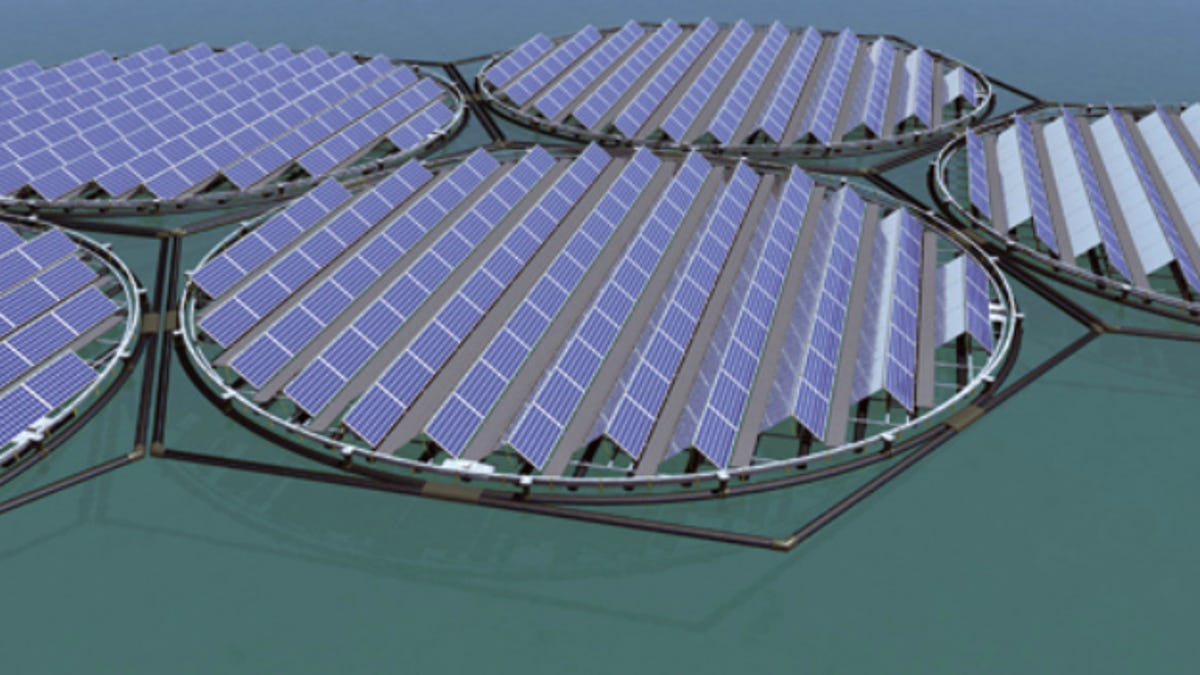Floating solar concentrator keeps its cool
An Italian research company designs a solar concentrator system that uses the water to cool solar panels' generators at artificial reservoirs on farms or quarries.

An engineering company in Italy has thought of a way to boost solar panels' production with concentrators while not taking up valuable land: put them on rafts.
Scienza Industria Tecnologia (SIT) this week detailed the solar generating system called Floating Tracking Cooling Concentrator, which is being tested in Italy and South Korea. The research company's hope is that these solar concentrators will be used on small lakes or artificial reservoirs on farms and quarries.
There are already solar arrays put on ponds, including a winery in California. But SIT is trying to use the water as an advantage for cooling panels coupled with concentrators.
Reflecting light with mirrors onto standard silicon solar panels can significantly boost the output of the panels. But high heat caused by concentrating light actually cuts silicon solar cells' efficiency. In its design, SIT has water circulating over the panels, which will increase the output by about 10 percent on an annual basis.
Marco Rosa-Clot, a professor at Florence University who spearheaded design of the floating solar concentrator, said that if 10 percent of the artificial reservoirs and lakes in Sicily were covered with solar plants, it would generate 1 gigawatt of power at peak times. The cost of the system, meanwhile, would be 20 percent less than ground-based solar arrays, he told AFP.

